18th International Week Brochure
Under construction

Urs Pietschmann
Urs.Pietschmann[at]w-hs.de
Affiliation:
Westfälische Hochschule, Campus Bocholt
University of Applied Sciences, Department of Business and Information Technology
https://www.w-hs.de/win/
Short introduction:
Prof. Dr. Urs Pietschmann is professor for business administration, esp. managerial accounting and auditing for the Westfälische Hochschule at Campus Bocholt in North Rhine Westphalia, Germany. His main research and teaching aspects are about the operative, tactical and strategic view in managerial
accounting, planning and the according control processes. In research projects he works in interdisciplinary teams, right now in topics of sustainability reporting and company steering.
Before his appointment at the Westphalian university, he worked for a leading steel processing company in the areas of controlling, decision support and restructuring.
His academic background is a PhD in Operations Research and Accounting, a Diploma in Management and Economics and activities for the Institute for Management at the Ruhr-University Bochum.
Lecture/workshop: Corporate Planning and Management
Description of lesson:
Planning and control processes support successful corporate management. For this we will get examples in the lecture, how corporate planning becomes possible and which conclusions for the management can be drawn from it. In this context, analyses of deviations of results from their planned values will also be relevant. For example, we will use two exemplary procedures to distinguish between price and employment effects.
* * * * * * * * * * * * *
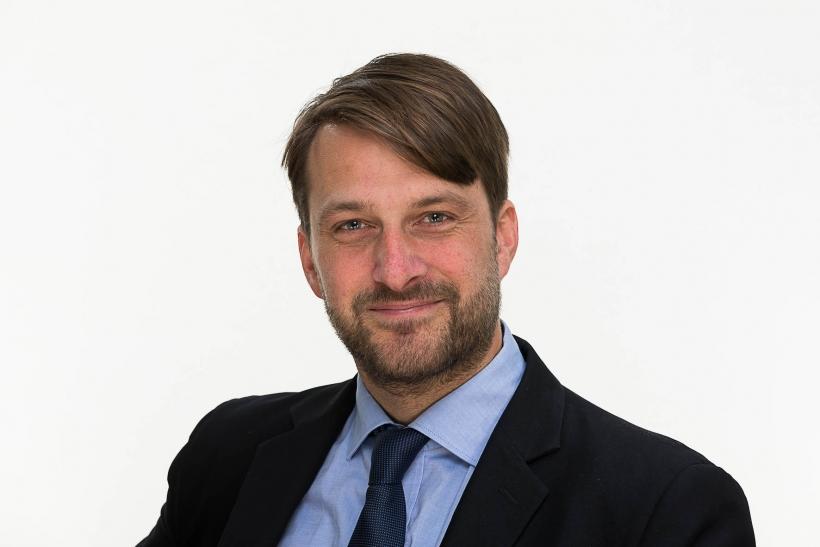
stollhoff[at]th-wildau.de
Affiliation:
Department of Business, Computing, Law, Technical University of Applied Sciences in Wildau, Germany
https://en.th-wildau.de/
Faculty Professor at TH Wildau with a research/teaching
focus on Business Mathematics / Risk Management, Statistics / Data Analysis / Machine Learning. Before joining TH Wildau he worked for several high-ranking public institutions and gained professional expertise in quantitative analysis and advising high-level decision-makers. His academic qualifications include a Dr. rer. nat in Computer Science, and a Diploma in Mathematics.
Lecture/workshop: Introduction to Game Theory
Game theory analysis strategic decision making using logical reasoning and mathematical modeling. In the past it has been applied in various contexts ranging from politics to sports. In this course students will first be introduced to basic concepts of game theory (Nash equilibrium,…). They will then work in small groups to apply these concepts to example cases and present their results. In the end we will conclude with a discussion of the basic assumptions and applicability of game theory and an outlook on modern improvements of game theory in the field of behavioral economics.
* * * * * * * * * * * * *

Affiliation:
Centria University of Applied Sciences
Department of Centria UAS Campus in Ylivieska
www.centria.fi
Marko Laitila 48 years, married, 4 children. Swedish and German teacher since 1995 and senior lecturer at Centria UAS since 1997 and organizer of exhibition / fair service mainly for Finnish small and middle-sized companies. Participating on some other projects at the moment: Sales is a king 2,5 years project for small and middle-sized companies in our region. To make their (companies) marketing and selling better. Involve all the staff in marketing and selling. Kivako- project for a larger digital German course for students at almost all the Universities
for Applied Sciences in Finland. The project will last three years and result as a module based digital language course in several languages.
Lecture/workshop: title
description
* * * * * * * * * * * * *
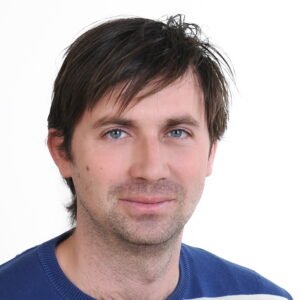
zlatko.nedelko[at]gmail.com
Affiliation:
University of Maribor, Faculty of Economics and Business, Slovenia
http://www.epf.um.si/en/
Zlatko Nedelko:
Zlatko NEDELKO, Ph.D.is full professor at the University of Maribor, Faculty of Economics and Business, Slovenia. He was a visiting researcher at Vienna University of Economics and Business, Austria (2012), at Vilnius Gedminas Technical University, Vilnius, Lithuania (2014), and at Obuda University, Budapest, Hungary (2019). He has published his articles in peer reviewed scholarly journals including but not limited to /Review of Managerial Science, Journal of Business Ethics, Journal of Business Research, //Journal for East European Management Studies, International Journal of Physical Distribution & Logistics Management, Journal of Business Economics and Management, Transformations in Business and Economics, Engineering Economics, System Practice and Action Research, E+M, Systems research and behavioral science, Journal of enterprising communities, Journal of Knowledge Economy, and Management. /He also co-authored books with Pearson, Palgrave Macmillan, IGI
Global. He led many national projects as well as several projects aimed on scientific cooperation with United States of America, Germany, Russia, Hungary, Serbia, Croatia, Norway, Finland, and Lithuania, funded by Slovenian Research Agency. He also participated in other projects, like Fostering entrepreneurship in Higher Education – FOSENTHE, EC Tempus P JP 144713, Management tools in Slovenia and Croatia, and Interreg project Slovenia – Austria entitled Smart Production. He is a member of program group – Entrepreneurship for innovative society (P5-0023).
Lecture/workshop: Digital transformation and Industry 4.0 – Organizational viewpoint
The lecture addresses digitalization and Industry 4.0 issues from organizational viewpoint. First the concepts of digitization and Industry 4.0 are presented. Digitalization is outlined as an important driver of development and competitive advantage of organizations across the globe. Next, the lecture focuses on determining current level of Industry 4.0 implementation in organizations, by presenting various models to measure readiness and the state of digitalization.
Next, technological and non-technological aspects of the implementation of Industry 4.0 in organizations are outlined, where the focus is on non-technological aspects. COVID and “current economic-crisis” as catalysts and inhibitors for digitalization and digital transformation will be discussed.
Next, the lecture will focus on crucial challenges in implementing Industry 4.0 principles in organizations, where focus will be on establishment of Industry 4.0 implementation strategy, implementation in Small and Medium Enterprises, implementation in service organizations and improving digital competences of employees. Lecture will be concluded with presentation of research results
regarding actual state of Industry 4.0 implementation based on field survey of organizations in Slovenia, as well as with discussion about cognitions from workshops in organizations, obtained through consulting in organizations.
* * * * * * * * * * * * *
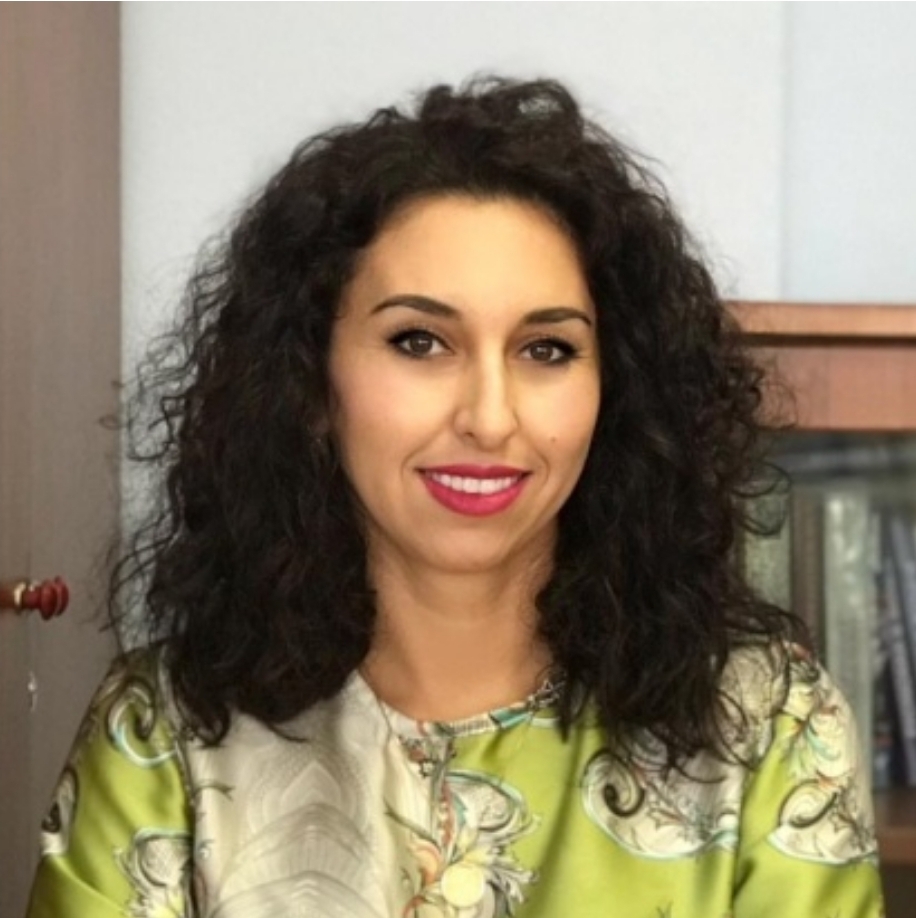
erjola.barbullushi@unishk.edu.al
Affiliation:
University of Shkodra „Luigj Gurakuqi”
https://unishk.edu.al/en/
Erjola Barbullushi, PhD is a lecturer at the University of Shkodra”Luigj Gurakuqi”, Faculty of Economy. Her main research interests are Taxation and Fiscal Policies, Financial and Managerial Accounting, Social Responsibility and Performance evaluation. She has teaching experiences at Sandhills Community College, North Carolina(USA), University of Warsaw, University of Management in Varna, University of Pecs, University of economics in Bratislava, etc. She holds since 2011 the CPA qualification and is engaged in financial consulting in private enterprises. She is author of several scientific papers published in scientific journals or presented in international conferences.
Lecture/workshop: Activity Based Management and Activity Based Costing
Nowadays there is less space for any business to survive in markets. Competition is increasing rapidly due to the increase of efficiency operations, technological change and due to strategies followed. Internal reporting and management costing systems play an important role in the play.
Business and organizations are like a good mystery. Their costing systems are often filled with unresolved questions: Why are we bleeding red ink? Are we pricing our products accurately? Activity-based costing can help unreveal the mystery and result in improved operations.
* * * * * * * * * * * * *
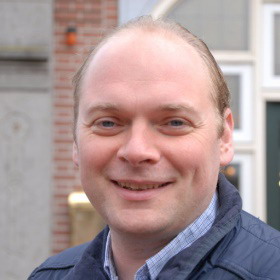
j.c.bazen[at]saxion.nl
Affiliation:
Saxion University of Applied Sciences, Enschede, The Netherlands
https://www.saxion.edu/
Jacques Bazen is lecturer International Economics and Entrepreneurship, as well as researcher Regional Economic Development at Saxion University of Applied Sciences in Enschede, The Netherlands. He has been working on many (EU) research projects, especially in relation to Central and Eastern Europe as well as helping (Dutch) companies to become active or expand their activities in this region. Currently he is working on a number of large projects to help support the development of circular economy in regions in the Eastern part of The Netherlands, among others by developing tools to monitor the development of circular material flows.
Lecture/workshop: Globalization and Deglobalization
During the second half of the 20th century, the volume of international trade tripled. This was a consequence of the ever-falling transportation costs and trade liberalization. However, during the last decades, since the economic crisis of 2008, further growth of international trade has turned into a slow decline. This development has been called „de-globalization”, already before the Corona pandemic and the current Russia-Ukraine war. This lecture attempts to describe and analyse the long-term societal trends and developments behind the growth and decline of international trade and tries to explore some of the consequences that these developments may have for the economic development of the EU.
* * * * * * * * * * * * *
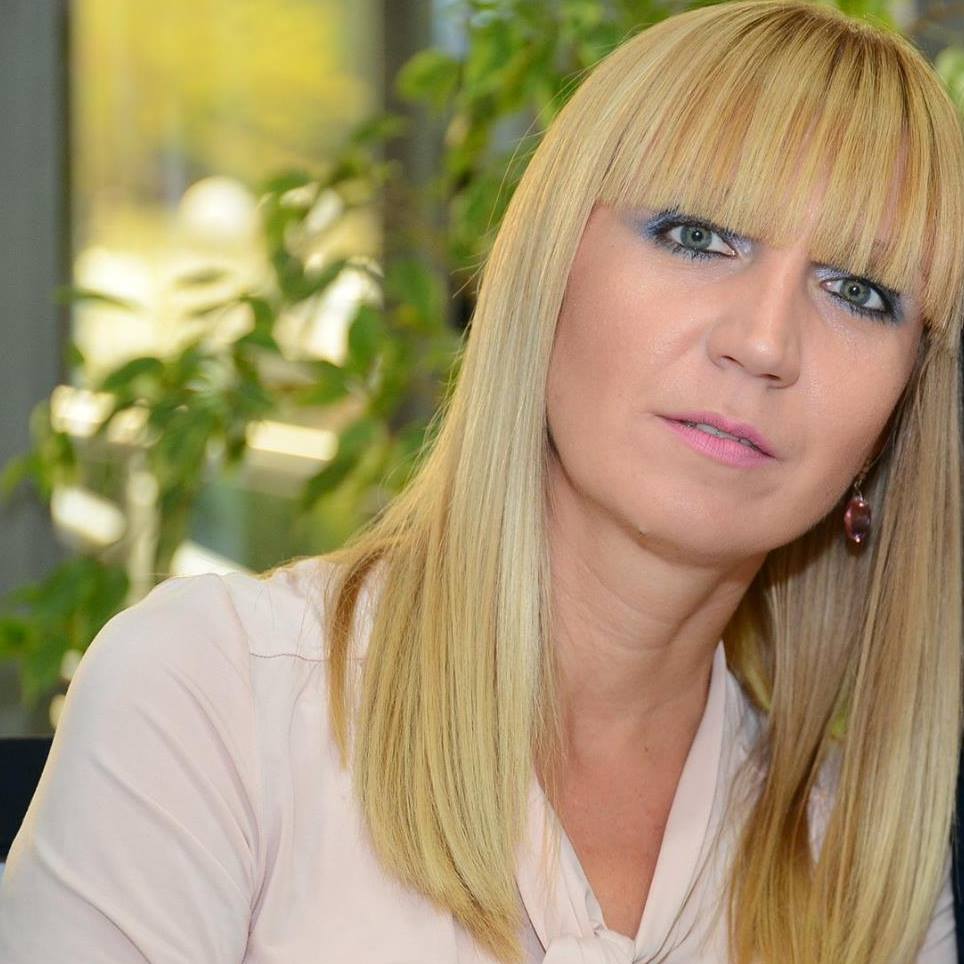
Affiliation:
University of Belgrade, Technical Faculty at Bor
https://www.tfbor.bg.ac.rs/
Aleksandra Fedajev is PhD in Economics and Associate professor at the Engineering management department of Technical faculty in Bor, University of Belgrade, teaching the following subjects: Basis of business economics (BAS), Basis of market economy (BAS) and Planning and control of costs (BAS). She graduated and finished her PhD studies at University of Kragujevac, Faculty of Economics. Also, she is author and the co-author of numerous papers in international and national journals and proceedings of large number of national and international conferences. The main areas of her scientific research are economic policy, sustainable development, regional development and transition.
She is especially interested in implementation of Europe 2020 strategy and its impact on economic development and competitiveness. Also, she is certified Get-IT (Graduate Entrepreneurship Training through Information Technologies) trainer. She is proficient in various software tools such as SPSS, MS Office, Visual PROMETHEE, SmartPLS and others.
Lecture/workshop: Comparative analysis of selected companies using the ratio analysis and Promethee method
Lectures are focused on the usage of ratio analysis in combination with multi-criteria analysis (PROMETHEE method, precisely) for comparison of the financial situation in selected companies. The course is aimed at performing ratio analysis, selecting the proper ratio indicators for multi-criteria analysis (by the usage of the coefficient of variation and correlation coefficient), and performing the ranking of considered companies according to all selected indicators by the usage of PROMETHEE method. Students will have possibility to acquire some very interesting and useful theoretical knowledge and skills they can use in practice.
* * * * * * * * * * * * *
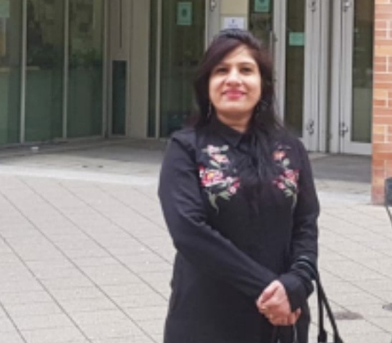
Affiliation:
Department of Human Resource Management, School of Business,
City University Ajman, United Arab Emirates
Exploring the ocean of Teaching, Research, and Learning toward change is the aim of my life. I, Dr. Hima Parameswaran work as an Assistant Professor-Human Resource Management, at the School of Business at City University Ajman, United Arab Emirates. Having earned a Ph.D. in Public Administration-HRM in 2015, the areas I teach include Strategic HRM, Staffing Organizations, Performance Management & Rewards, Quality Worklife, Leadership & Organizational Development, etc. With my expertise in talent management, resource-based paradigms, adult learning theories, and organizational learning, I have contributed to applied HRM research. In addition to transformational leadership, flexible workforces, Employee Value Propositions (EVP), Eudaimonic and hedonic motivation, and Industry 5.0 & HRD, I have published 21 research papers in reputed international journals and participated in and presented papers at 15 national & international conferences. Serving as keynote speaker, session chair/coordinator, organizing committee member, and outstanding paper presenter at several conferences and an ‘outstanding research/academic award’ from my university has been a pleasure.
Additionally, sixteen years of my professional experiences have revolved around academia, healthcare, and television media. In my community service role as part of corporate social performance, I provided six workshops/services aimed at improving society.
Lecture/workshop: title
Firms in this 21st century suffer from the syndrome of seeking efficiency and effectiveness in employee performance and change management. From this perspective, the workshop penetrates through the lens of strategic management by determining what needs to be done to achieve corporate objectives, and more importantly, how these objectives are to be met. The learning objectives are:
• Understand the differences between the two traditional models of strategy and the strengths and weaknesses of each,
• Explain the steps in the strategic management process and the interrelatedness of its sequence of steps,
• Appraise the different corporate and business unit strategies and the human resource challenges inherent with each,
• Evaluate the different HR-related challenges in private and publicly held organizations,
• Synthesize HR analytics tools to have learning organization and change management through innovation.
Students will be grouped for team activities, case analysis & discussions to make the session interactive and creative. The outcome of the workshop would be to facilitate the development of a high-quality workforce through the cost-effective utilization of talents, and assessment of environmental uncertainty. Hence, organizational learning and change management toward business excellence can be an impact.
* * * * * * * * * * * * *
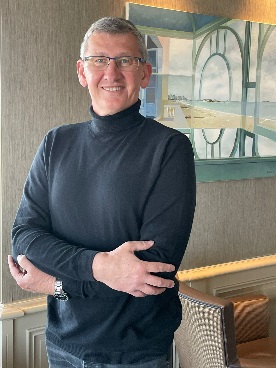
pascal.ricordel@univ-lehavre.fr
Affiliation:
Université Le Havre – Normandie
Department of Business and Administration Management, Université Le Havre Normandie
Hi everyone, I have taken my Mona Lisa posture for you to guess where I am originated from 🙂 I am a PhD economist graduated from Paris I Paris Pantheon-Sorbonne. My anchorage in Le Havre City has influenced my research that is currently developed in three directions: Cities renewal policies, Regional performance and resilience, Corporate Finance and Social Responsability. I use to teach International Economics, Macroeconomics, Finance and also Project Management. I am fond of Serious Games. And I like to meet an international diverse audience. My credo: “a foreigner is a friend you haven’t yet met”. My hobbies: Travelling through the world (last travel: Dubaï and Oman), looking for my balls in a golf course, playing piano.
Lecture/workshop: How to improve your skills in project management? From thinking to training
We begin with an in-depth brainstorming session on the skills needed to successfully drive a project. Then, the students must apply what they have proposed, by piloting a new product project within the framework of a serious game. The students are organized into teams (a laptop is necessary) and must coordinate 12 tasks, and manage the project while respecting the risks of costs, deadlines and quality. All teams compete in a fair and fun spirit to achieve the best market share. Students, you will improve your skills by discovering the risks associated with the project and how to avoid them.
* * * * * * * * * * * * *

Affiliation:
Head of Department of Economics and Finance
Faculty of Economics, Business and Development
European University of Tirana
https://uet.edu.al/en/our_team/dr-elona-shehu/
Doctoral Studies Doctor of Science in Finance – Corporate Governance, European University of Tirana
Master Studies Master in Business Administration: Specialised in Financial Management: VU Amsterdam, Netherlands.
Master of Science in Economics and Finance, European University of Tirana
Bachelor Studies Bachelor in Finance and Banking, European University of Tirana.
Elona Shehu is a Doctor of Science in Banking and Corporate Governance field at European University of Tirana. She studied in Albania, Netherlands and also one semester in Budapest, at Óbuda University, doctoral school. She has about 12 years’ experience in finance, where she was appointed as the Administrator of the European Education Initiative company. She also has more than 8 years of academic experience as lecturer assistant at first, lecturer from 2017 and was appointed as Head of Department for Economics and Finance in October 2021.
Lecture/workshop: Investing in Options Strategies
In this course students will get information about derivatives securities. The lecture will be divided in 3 parts; in the first part students will learn about options, their characteristics, types of options; in the second part students will learn about option quotes and option combinations as a diversified investment strategy, mentioning here straddle, covered calls, protective puts ect.; in the third part of the lecture session, students will learn about valuing options through Black Scholes model.
* * * * * * * * * * * * *
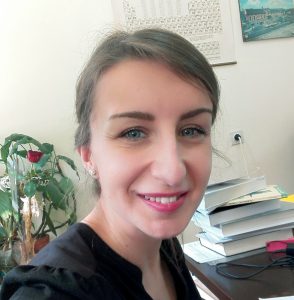
Affiliation:
University of Belgrade, Technical Faculty at Bor
Milica Veličković is working as associate professor at Technical faculty in Bor, University of Belgrade (Serbia). She is teaching Organizational Behavior, Entrepreneurship and R&D Management. She has 15 years of teaching experience at university (5 as teaching assistant and 10 as teacher). Besides teaching, she is doing research work and she is author or co-author of 16 scientific papers published in international journals and over 30 conference papers. She also has experience in project activities, both national and international. Currently, she is a member of international consortium INTERGEN (The intergenerational family businesses as a stress management instrument for entrepreneurs) and Cost Action CA21107
Lecture/workshop: Organizational behavior – Challenges and Opportunities
Students will be introduced to the concept of organizational behavior, organizational culture, national culture and the influence of national culture on the behavior of people in the organization. During the course, students will be able to understand how much cultural differences can affect the operations of global companies and suggest solutions how intercultural communication within organizations can be improved.
* * * * * * * * * * * * *

Affiliation:
University of Belgrade, Technical Faculty at Bor
https://www.tfbor.bg.ac.rs/
https://www.instagram.com/tehnicki.fakultet.u.boru/
https://www.instagram.com/engineeringmanagement_tfbor/
https://menadzment.tfbor.bg.ac.rs/
https://www.instagram.com/mara_panic/
Introduction:
Dr. Marija Panić is an associate professor at the Engineering Management Department at the Technical faculty in Bor, University of Belgrade (Serbia). She graduated in 2009 from the same faculty and completed her master’s degree in 2010. Her Ph.D. was awarded to her in 2015. She teaches Management, Risk Management, and Engineering Risk Management. The main areas of scientific research are engineering management, risk management, and technological process modeling using modern statistical tools and methods. She has 11 years of teaching experience at the university. She works on research activities in addition to teaching. She is the author or co-author of 26 scientific papers published in international journals with IF and over 30 conference papers. She is the vice president of the Organizing Committee of the International May Conference on Strategic Management (IMCSM).
Lecture/workshop: Risk management techniques
Students will be familiar with the concept of risk management. First, they will get closer to the concept and definition of risk in terms of uncertainty and exposure to losses. After that, attention will be focused on the types of risks individuals and organizations face, which is why basic techniques for managing personal and commercial risks will be highlighted. At the end of the course,
students will develop a case study, where they will have the opportunity to perform a concrete application of risk management techniques.
* * * * * * * * * * * * *
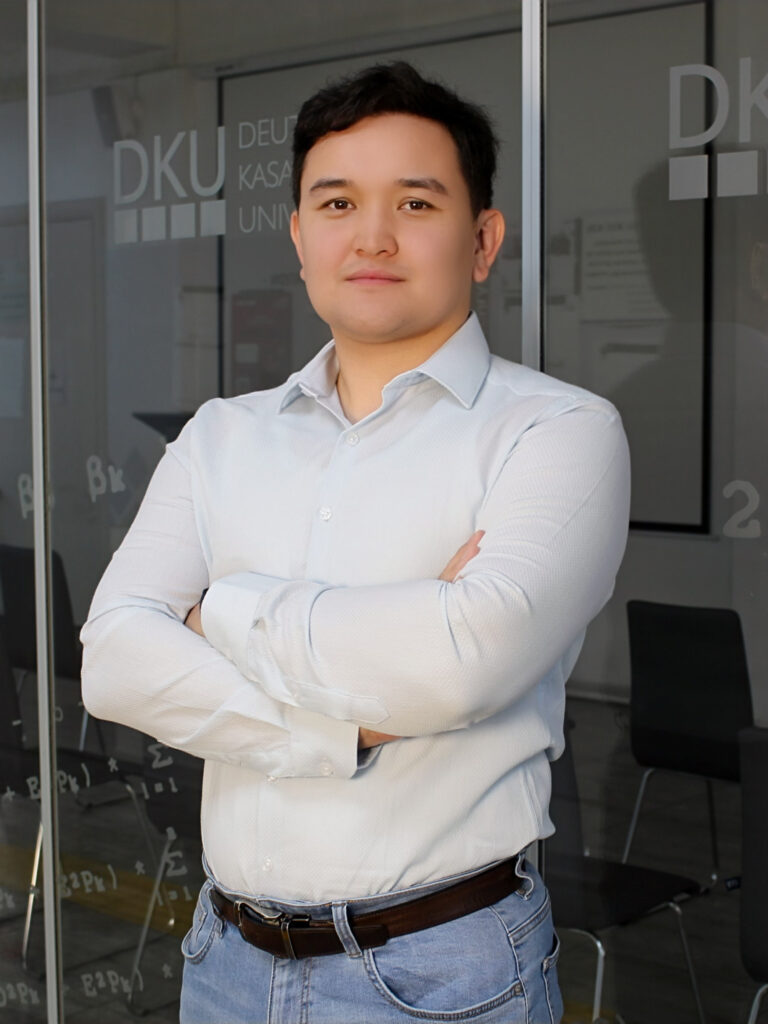
Affiliation:
Deutsch Kasachische Universität
DKU Business Club and LOG-Centre Coordinator. My activities: 1. Communication with industry partners (e.g. participants of VDW); Bringing university and business together; Finding common grounds; Business talks; Business correspondence; Sustainable development events and projects (e.g. DKU SuFECO, „Tomorrow was too late” – joint project with Goethe Insitute Kazakhstan, Renewable Energy Trip); Organizing guest lectures of German professors; Organizing and participating in logistics events (e.g. X Kazakh-German Logistics Forum)
Lecture/workshop: Business club as a platform for cooperation with industry partners
Lecture/workshop topic:
I would like to talk about such a structural unit as a business club at the university. In Germany, the interaction of educational institutions and enterprises is very important. At our university, we are trying to adopt the German experience and interact more actively with the business sector through an equal dialogue.
* * * * * * * * * * * * *
Mariola Grzebyk
Affiliation:
University of Rzeszów, Institiute of Economics and Finance, Poland
I am an academic teacher at the University of Rzeszów. I have many years of experience working with students. In 2018, I received my postdoctoral degree –
habilitation at Cracow University of Economics, Poland. My fields of specialization: Economy, Economic Development and Local and Regional
Development; Management-including human resources management, strategic management, strategies of company development and public management. I have published about 180 scientific papers, including scientific articles, books for students and monographs. I am also an expert in economics and management at the university and a member of the economics and finance discipline board in Poland.
Lecture/workshop: Planning as a function of management – challenges and expectations
I am going to present a planning as a main function at the eneterprise. First, I will present the theoretical background, then the students will be organized into group, and they have to solve the test (choose and fill in some sentences).
After that, they will prepare a hierarchy of goals – in terms of their importance for the selected organization – case study
* * * * * * * * * * * * *
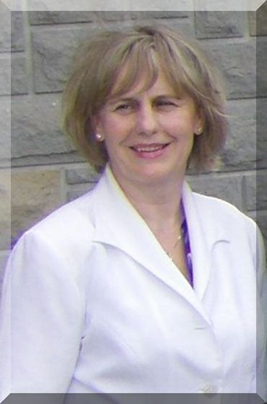
Affiliation
University of Rzeszow, Institiute of Economics and Finance, Poland
My fields of specialization: Finance, Financial management, new forms of capital.I teach students the following subjects: International finance and banking, Corporate Finance and Management of international business. I am an expert on the subject of finance, in the context of financing enterprises and other forms of business activity. I am particularly interested in comparative studies in the EU, in the financing structure of enterprises SMEs. I am specializing in the study of activity of new Polish enterprises, especially in the context of their financial situation and ways of allocation of capital. I am expert in the context of financing enterprises and other forms of business activity.
Lecture/workshop: The role of the financial system and its contemporary requirements
My scientific and research specialization is finance and financial management. As part of the training, I will familiarize students with the role of the financial system and its contemporary requirements, limitations and opportunities for further development.I will pay special attention to new forms of financing modern enterprises on the European market,as well as the structure of financing small and medium-sized enterprises, which are so important for the development of economies in Central and Eastern Europe. I will try to make comparative analysis.












